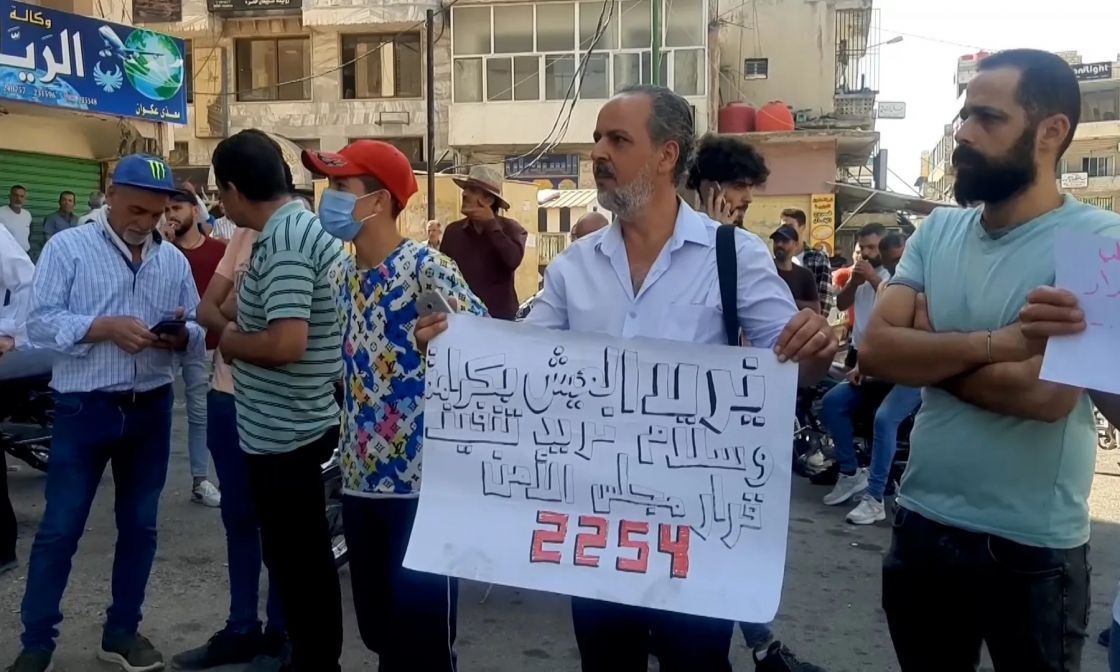- Editorials
- Posted
Kassioun Editorial 1141: Who is Against 2254 and Why?
Those who are against the implementation of UNSC Resolution 2254, which is concerned with Syrian led and Syrian owned resolution of the Syrian crisis based on Syrians’ right to self-determination on their independent unified land, are divided into two main types. The first type are those who verbally agree with the resolution and allege supporting it, while in reality they do all they can to prevent its implementation. The second type are those who openly stand against implementation of the resolution. Both types exist at the local, regional, and international levels.
As for the first type, who verbally support but are hostile in practice, have the US at top of the list along with the West, and implicitly the Zionist entity (exactly as they stood with regards to the Minsk agreements). The interests of all those lies within the continuation and deepening of the Syrian crisis, leading to - if possible - bolstering the de facto partitions and ending Syria’s geopolitical existence altogether. This is because Syria’s transformation into a black hole and a center for chaos and its exports, is considered a strategic goal, whether for the West in its struggle with the rise of the East, which considers stability a necessary path towards bolstering its rise and prosperity. This is also a strategic goal for the Zionist entity that is experiencing an existential crisis in light of the new international balance, and sees the rebirth of a new unified stable Syria additional qualitative pressure that will accelerate the effects of its existential crisis.
This type also includes the extremists within the opposition, and to some degree the extremists within the regime (because the latter try to avoid mentioning this resolution, whether as good or bad, and use this denial means as a psychological and political defense mechanism). The extremists within the opposition declare, out of deceit and piety, that they seek to implement 2254, while their practical political behavior and statements all add up to the “winner and loser” equation, that is, the “toppling and militarily defeating” equation, which completely contradicts the political solution equation, i.e., the 2254 “no winner - no loser” equation.
As for the second type, it is the one that openly attacks 2254, under the pretext that this resolution is an “intervention in national sovereignty” or by saying that it is an external resolution from the UN and Security Council, where “dominance is by the Americans”. More miserable within this type are those who consider the resolution a form of “imperialist division of Syria”. The locals within this type are not really the first ones who came up with these pretexts, but are repeating them after a certain portion of those who call themselves “the left” in Europe beat them to it. Those are specifically the Trotskyist / Zionist portion, who describe Russia and China as imperialist countries and form their actual alliances with the Americans and Zionists under this disguise.
It should be noted again that the UN as an institution was one of the outcomes of the new international balance in the first half of the 20th century, based on which the socialist camp and national liberation forces advanced after the victory over Nazism. That was reflected through the first Soviet veto in this institution, which stood in the way of France getting any privileges in return for evacuation from Syria and Lebanon. This trend was also expressed in resolutions 242, 338, 425, and others.
This also was expressed again within the new international balance in the series of Russian and Chinese vetos during the crisis years, which prevented an Iraqi-style foreign military intervention in Syria. Then it was expressed again in Resolution 2254, which constituted a juncture in the development of the international balance, to form a new model through which Syria emerges unified, as people and land, from the deepest crisis in its history, and through consensus among Syrians themselves.
What unifies the internal and external enemies of Resolution 2254 is their pursuit of narrow interests, which completely contradict the interests of the Syrian people. Those interests are either merely opportunistic ones at the level of individuals benefiting from the crisis and exploiting it, or strategic interests of forces hostile to peoples in general, where those forces have no interest in real stability and prosperity in Syria or its surroundings.


